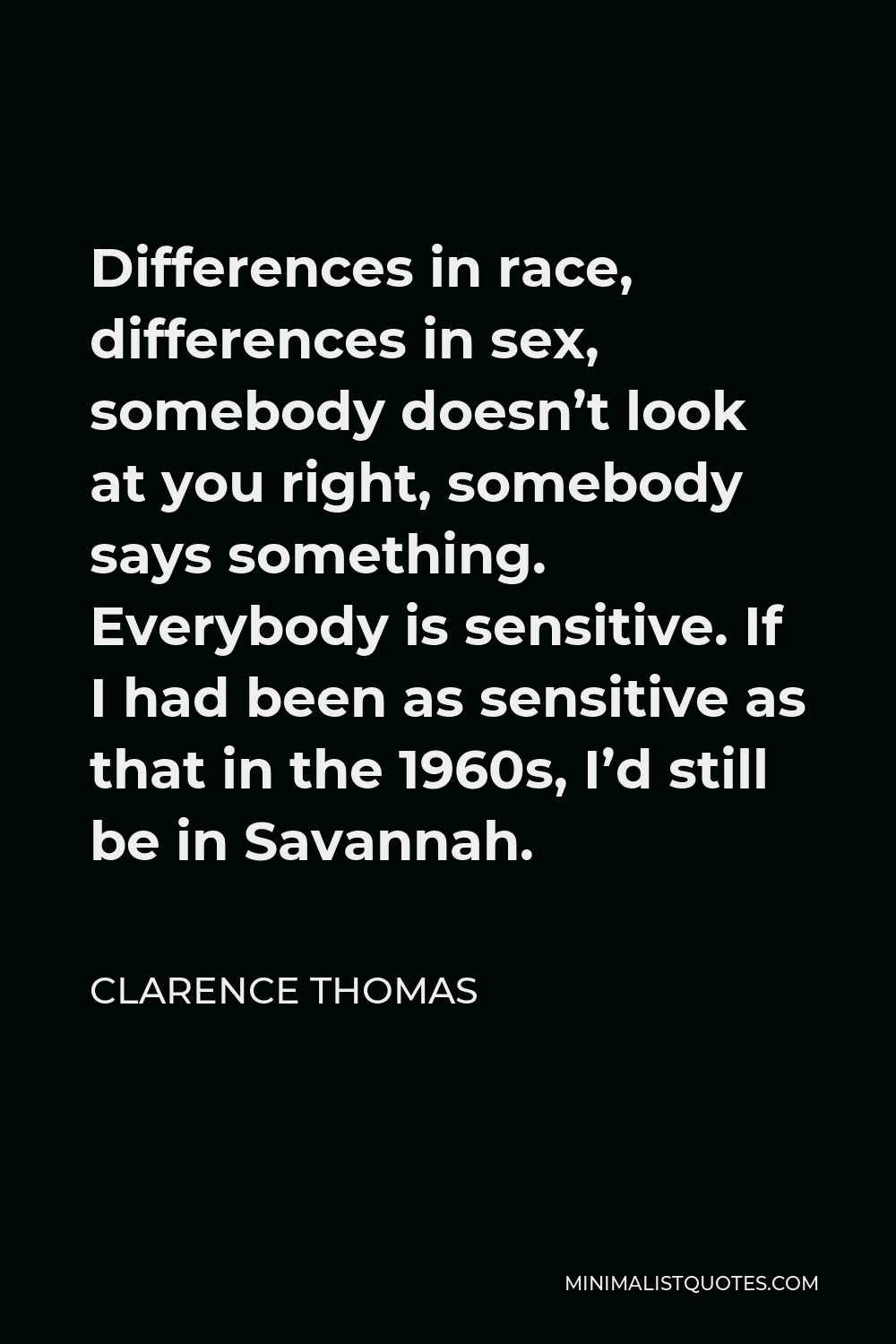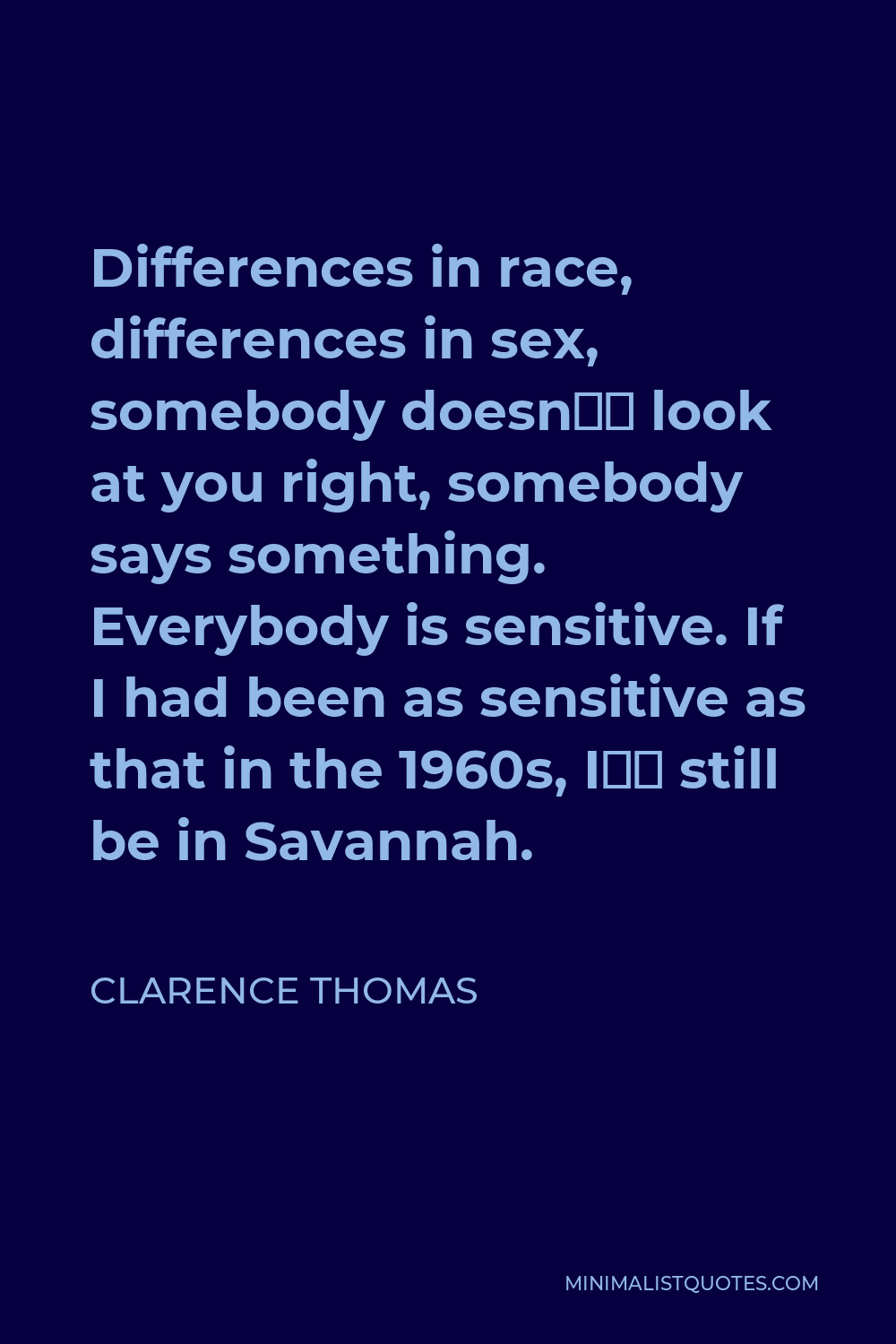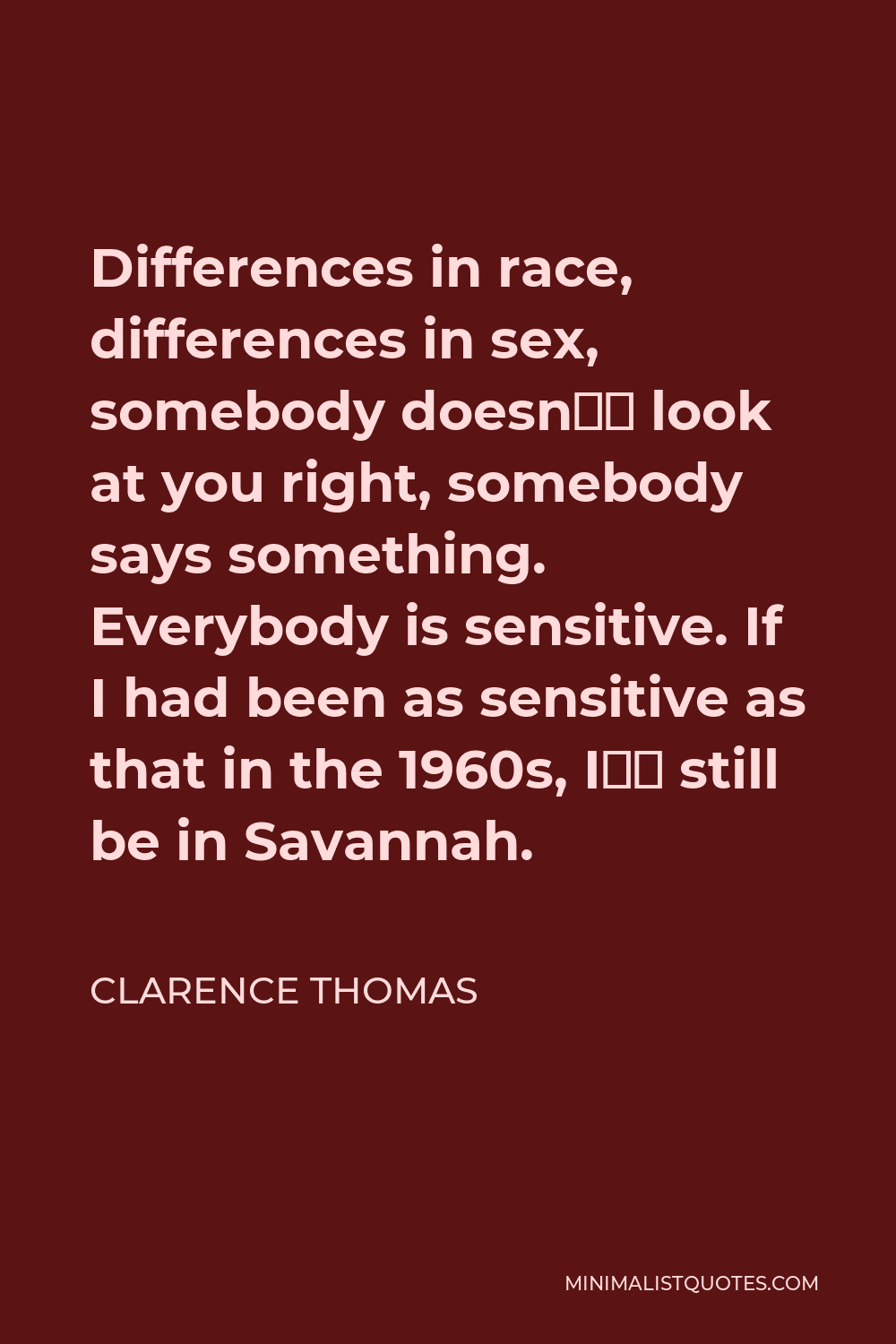If Congress can regulate this under the Commerce Clause, then it can regulate virtually anything-and the Federal Government is no longer one of limited and enumerated powers.
CLARENCE THOMASDifferences in race, differences in sex, somebody doesn’t look at you right, somebody says something. Everybody is sensitive. If I had been as sensitive as that in the 1960s, I’d still be in Savannah.
More Clarence Thomas Quotes
-





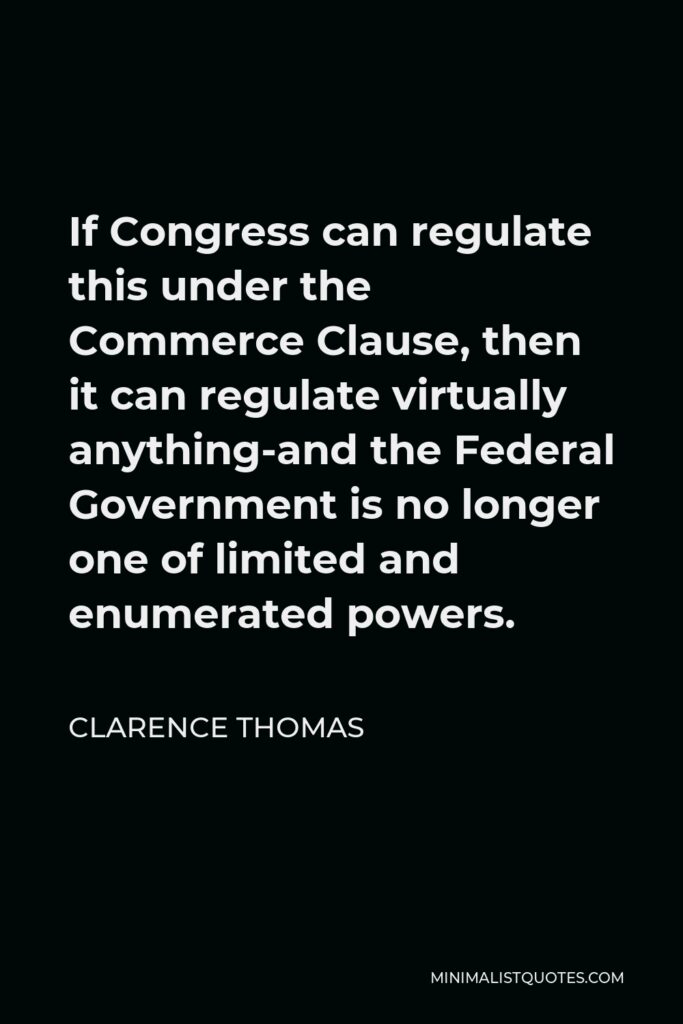

-





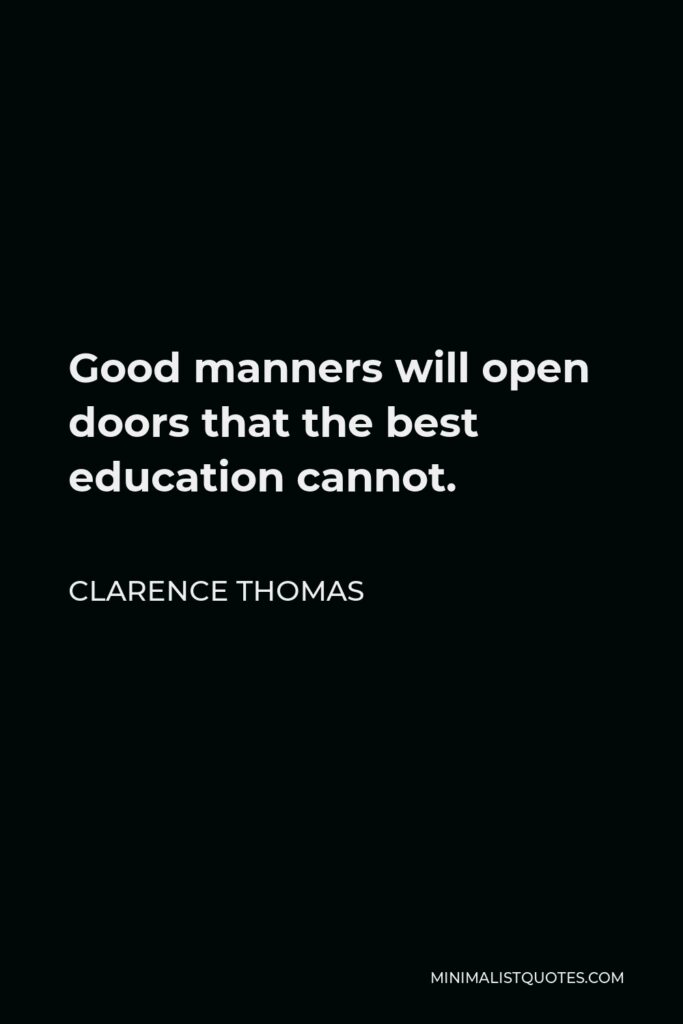

Good manners will open doors that the best education cannot.
CLARENCE THOMAS -





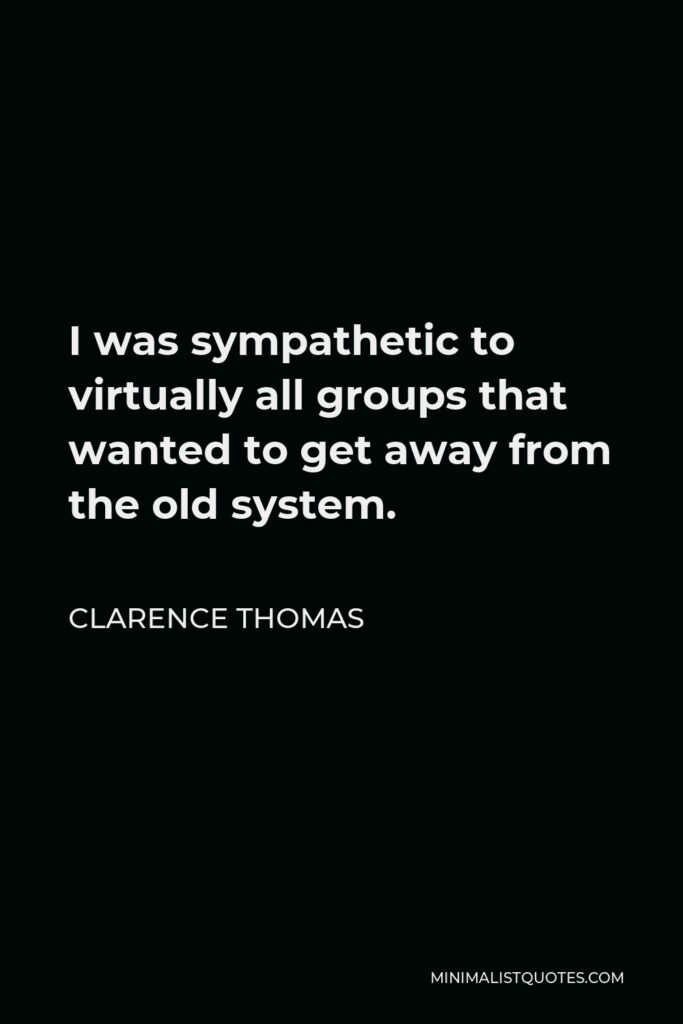

I was sympathetic to virtually all groups that wanted to get away from the old system.
CLARENCE THOMAS -





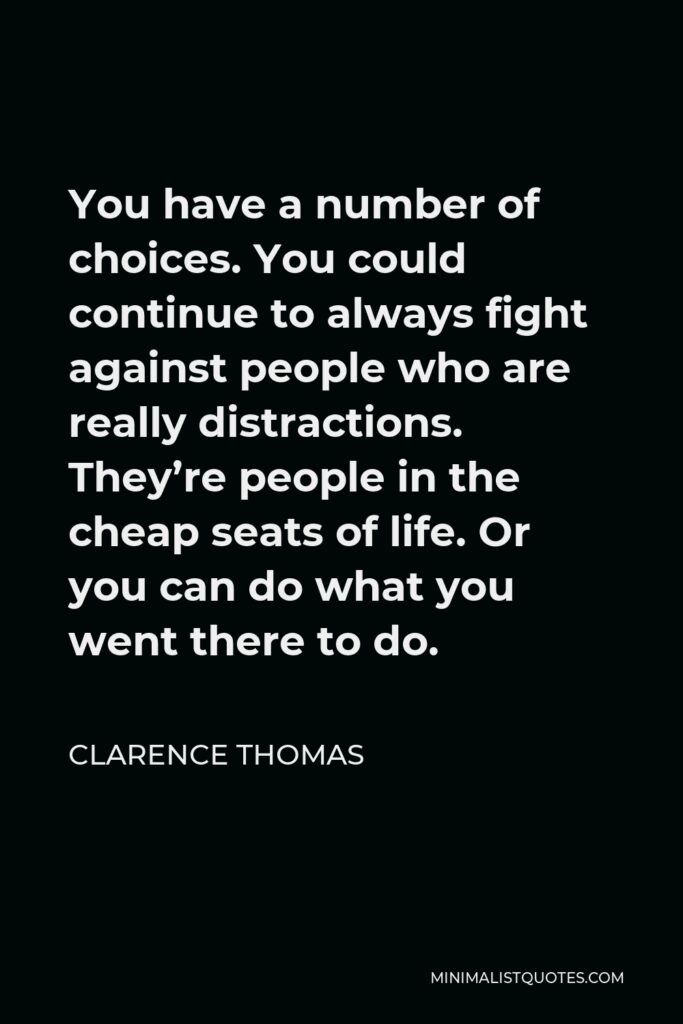

You have a number of choices. You could continue to always fight against people who are really distractions. They’re people in the cheap seats of life. Or you can do what you went there to do.
CLARENCE THOMAS -





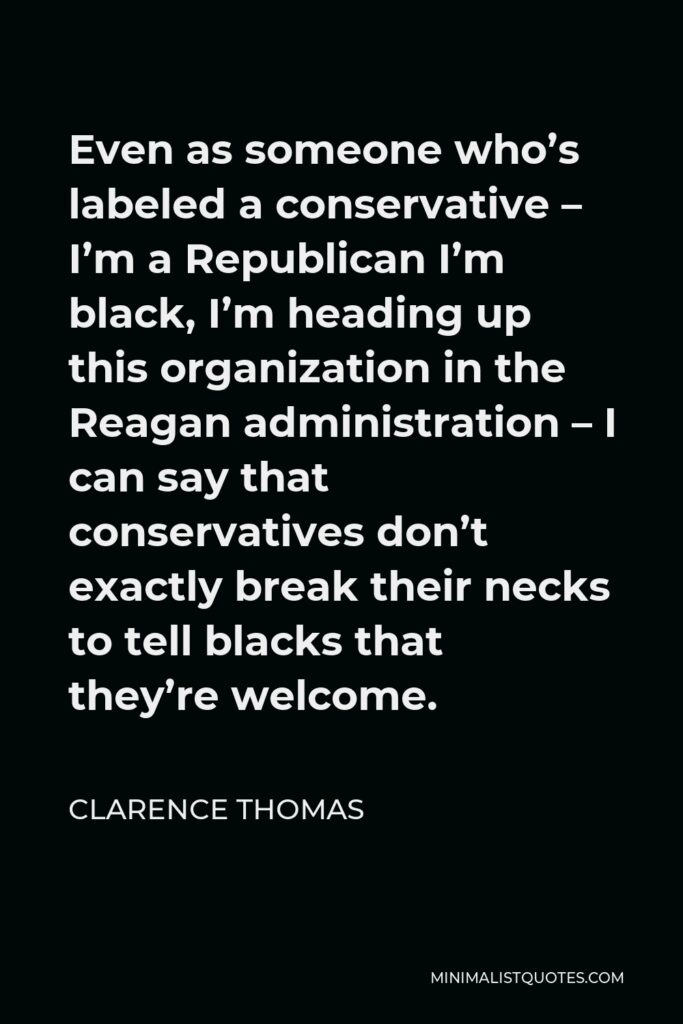

Even as someone who’s labeled a conservative – I’m a Republican I’m black, I’m heading up this organization in the Reagan administration – I can say that conservatives don’t exactly break their necks to tell blacks that they’re welcome.
CLARENCE THOMAS -





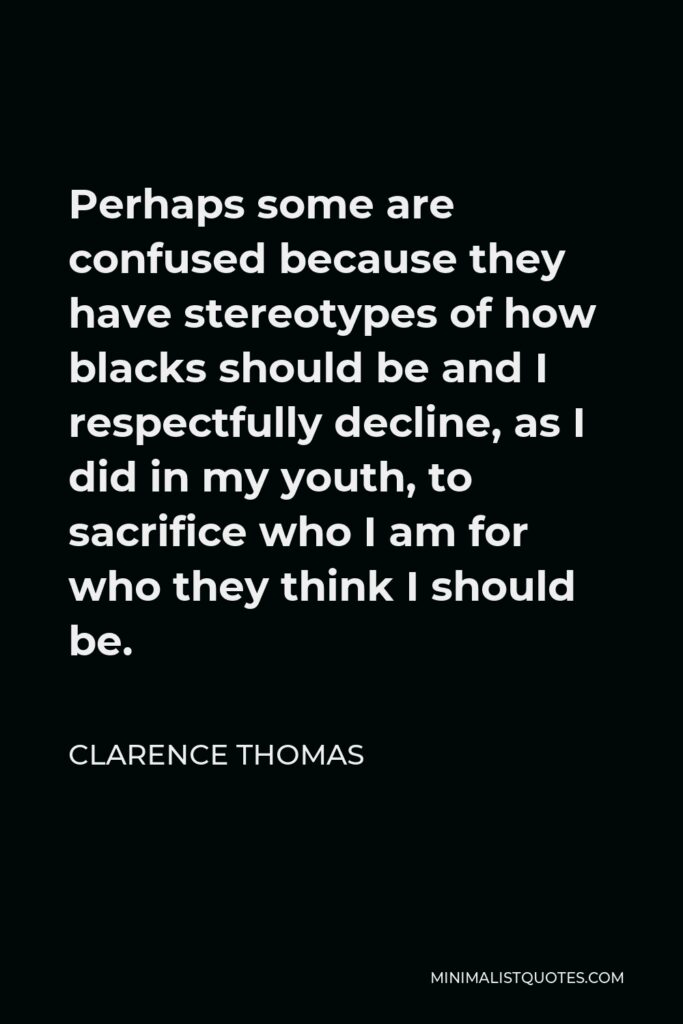

Perhaps some are confused because they have stereotypes of how blacks should be and I respectfully decline, as I did in my youth, to sacrifice who I am for who they think I should be.
CLARENCE THOMAS -





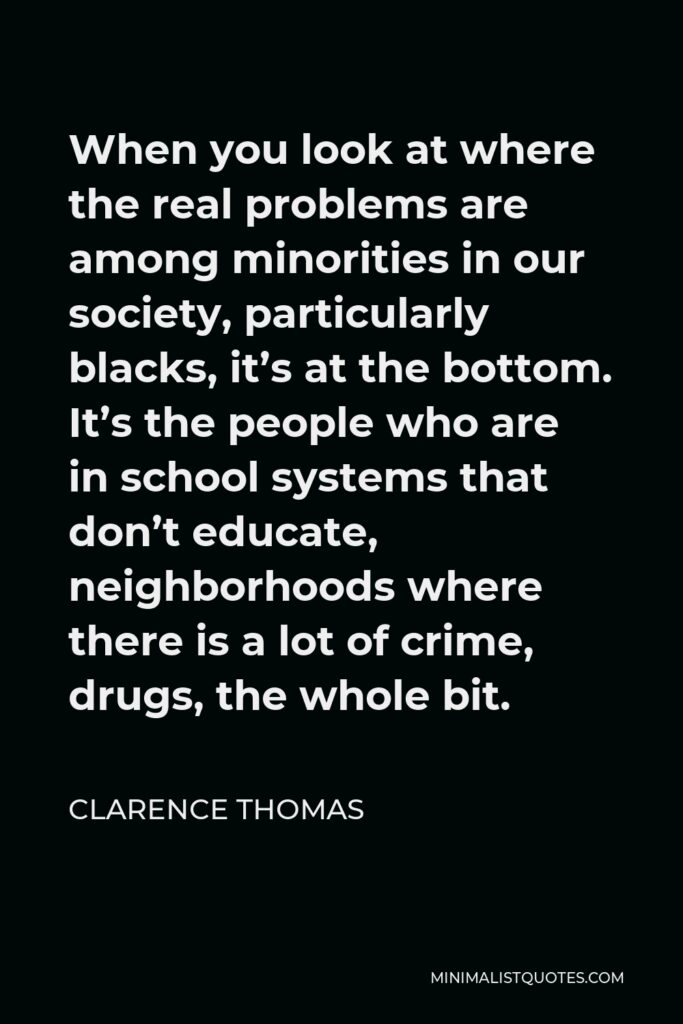

When you look at where the real problems are among minorities in our society, particularly blacks, it’s at the bottom. It’s the people who are in school systems that don’t educate, neighborhoods where there is a lot of crime, drugs, the whole bit.
CLARENCE THOMAS -





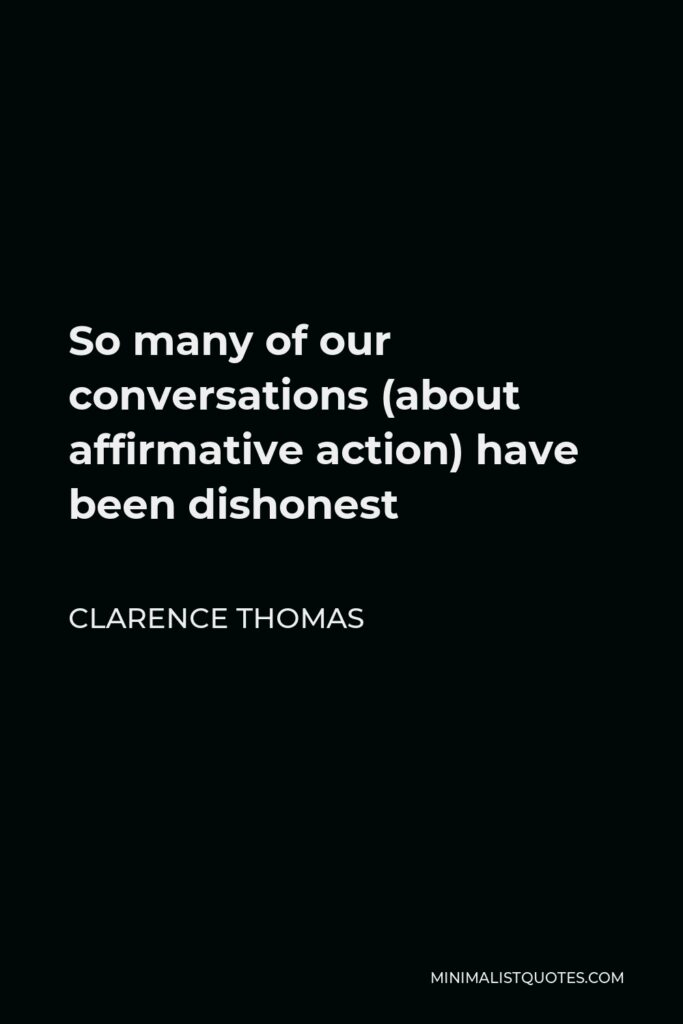

So many of our conversations (about affirmative action) have been dishonest
CLARENCE THOMAS -





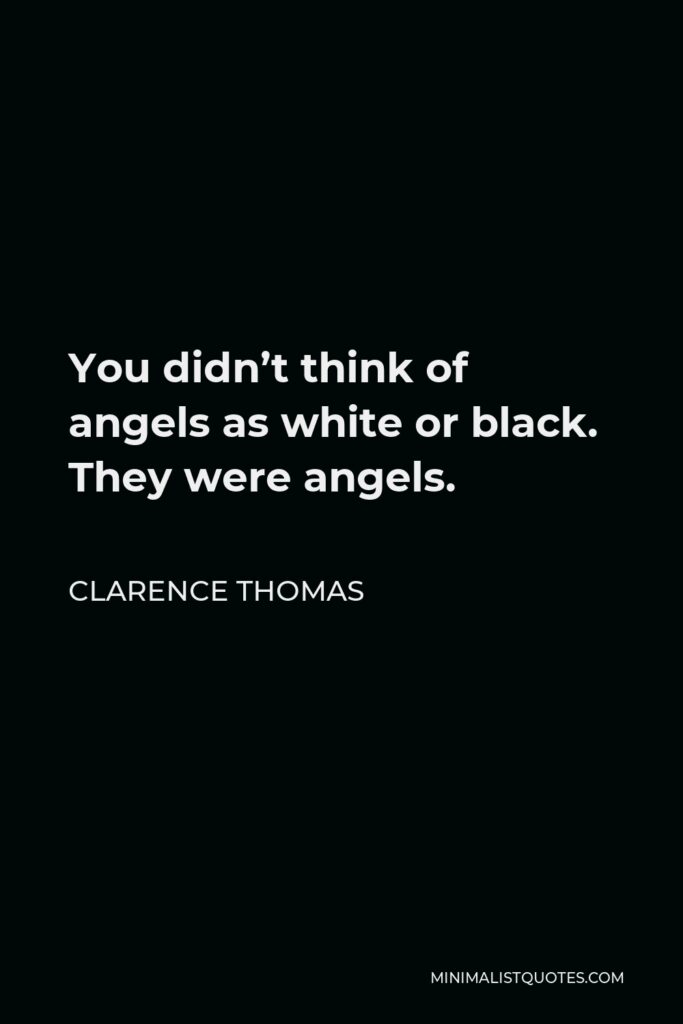

You didn’t think of angels as white or black. They were angels.
CLARENCE THOMAS -





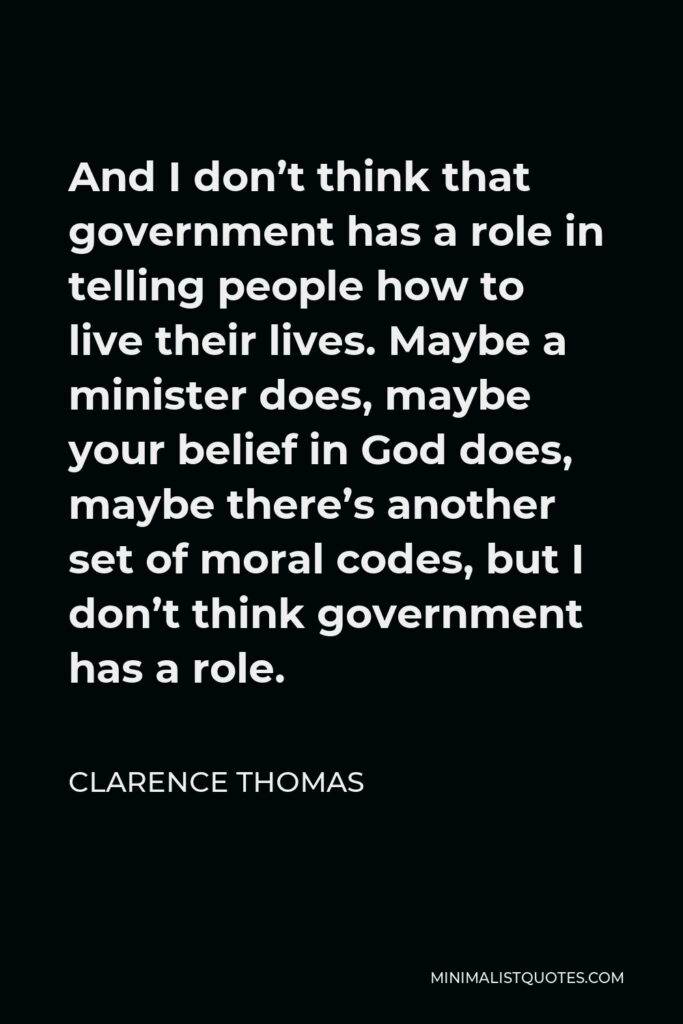

And I don’t think that government has a role in telling people how to live their lives. Maybe a minister does, maybe your belief in God does, maybe there’s another set of moral codes, but I don’t think government has a role.
CLARENCE THOMAS -





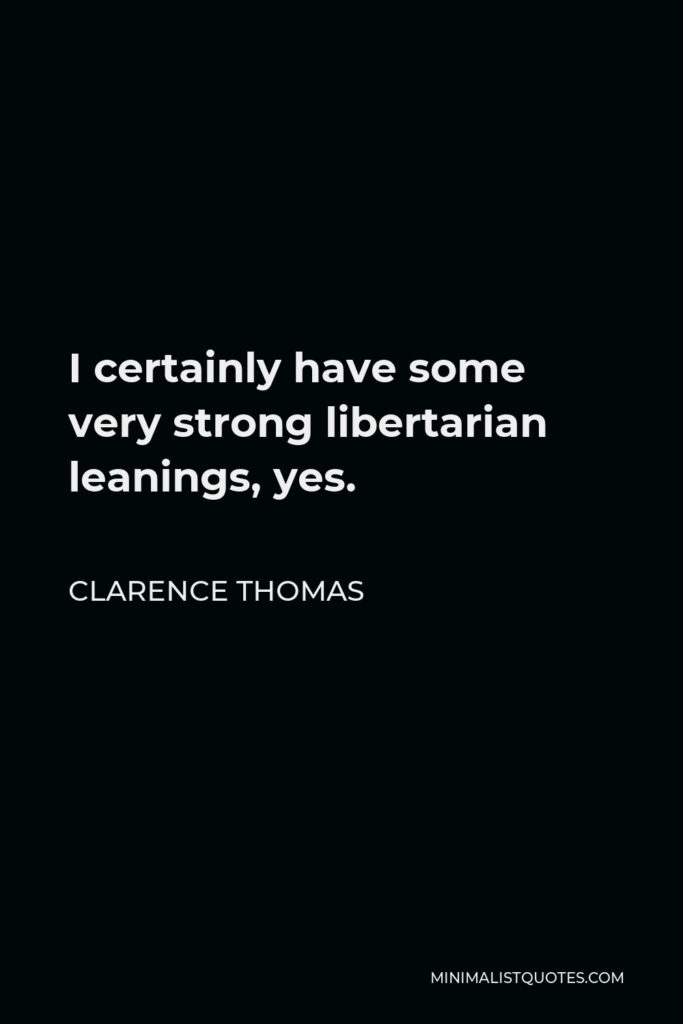

I certainly have some very strong libertarian leanings, yes.
CLARENCE THOMAS -





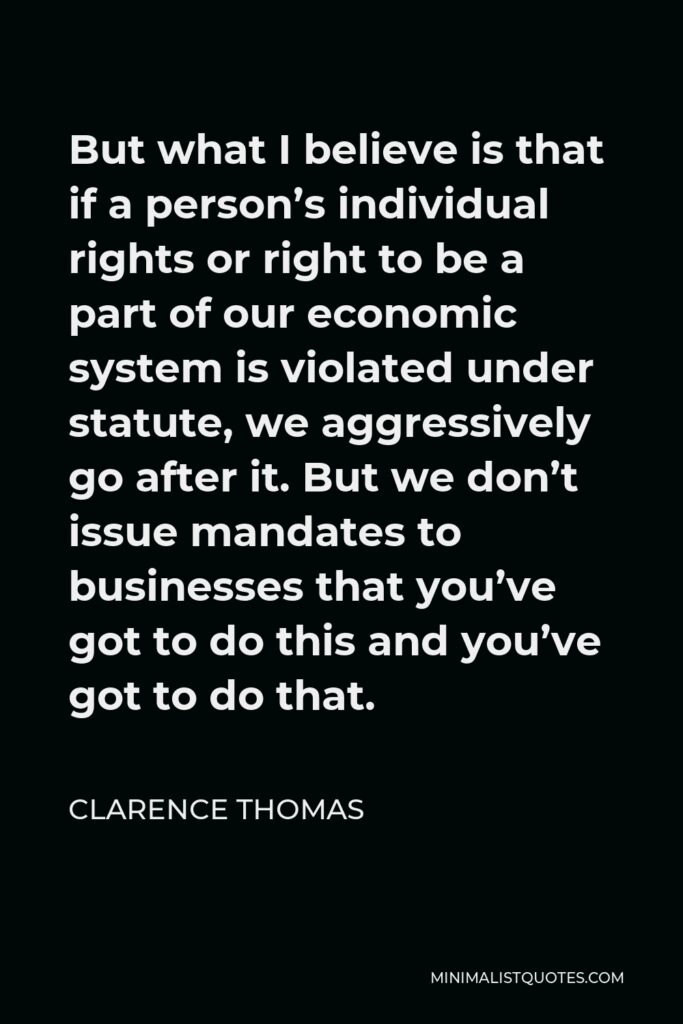

But what I believe is that if a person’s individual rights or right to be a part of our economic system is violated under statute, we aggressively go after it. But we don’t issue mandates to businesses that you’ve got to do this and you’ve got to do that.
CLARENCE THOMAS -





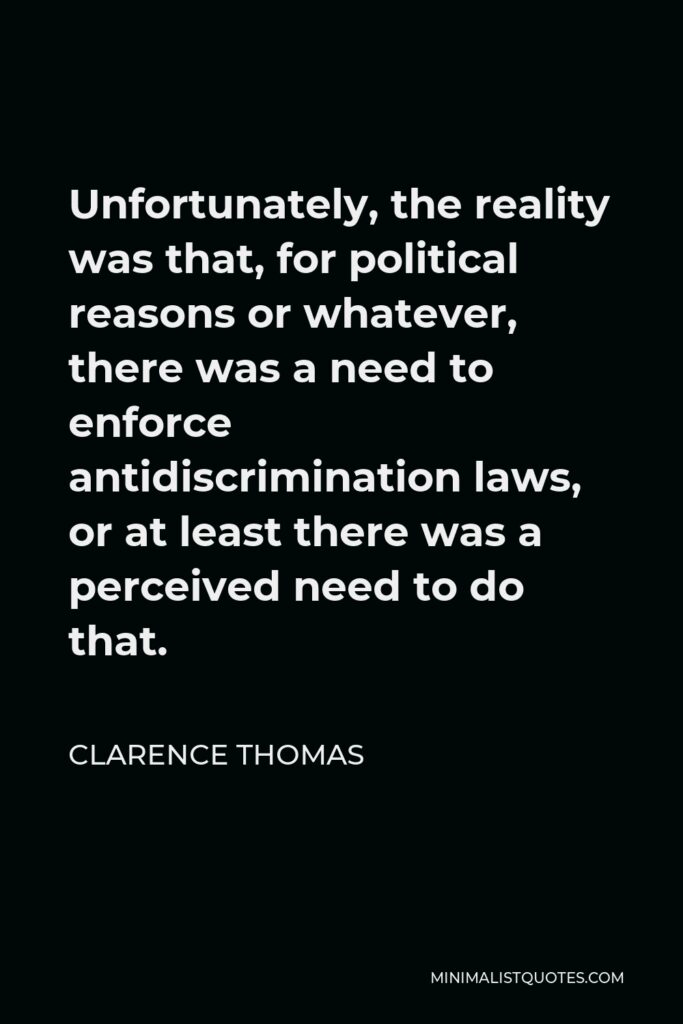

Unfortunately, the reality was that, for political reasons or whatever, there was a need to enforce antidiscrimination laws, or at least there was a perceived need to do that.
CLARENCE THOMAS -





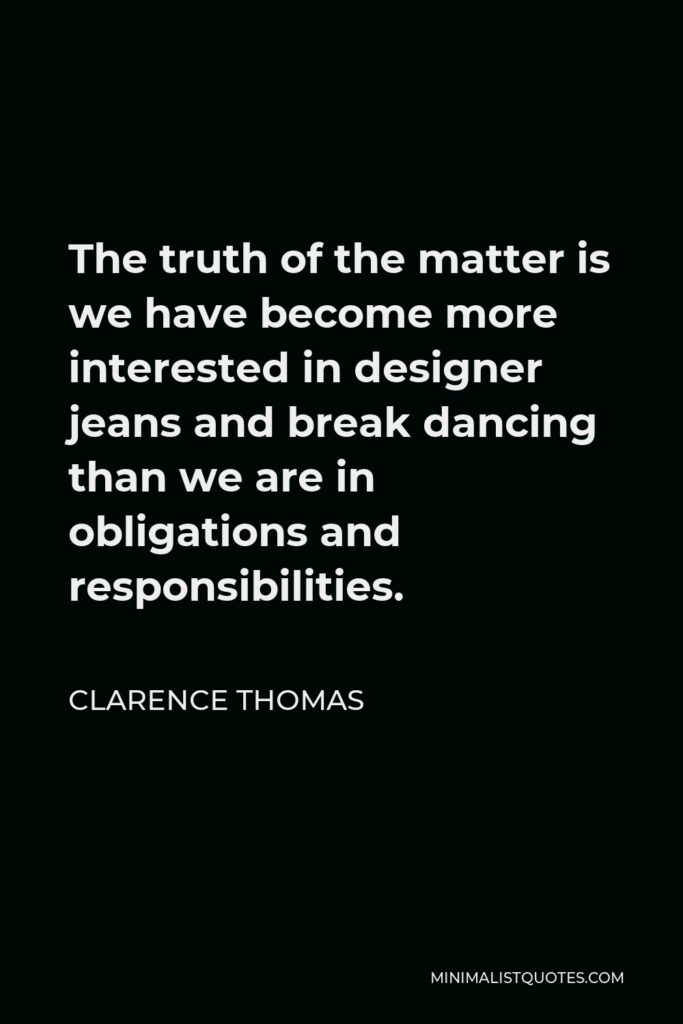

The truth of the matter is we have become more interested in designer jeans and break dancing than we are in obligations and responsibilities.
CLARENCE THOMAS -





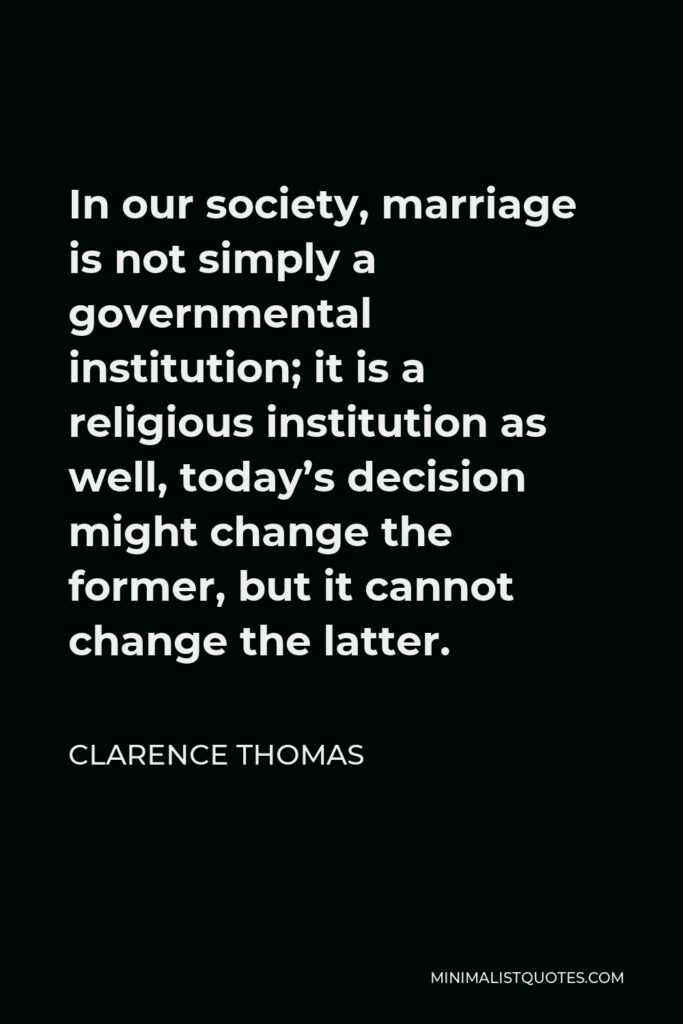

In our society, marriage is not simply a governmental institution; it is a religious institution as well, today’s decision might change the former, but it cannot change the latter.
CLARENCE THOMAS -





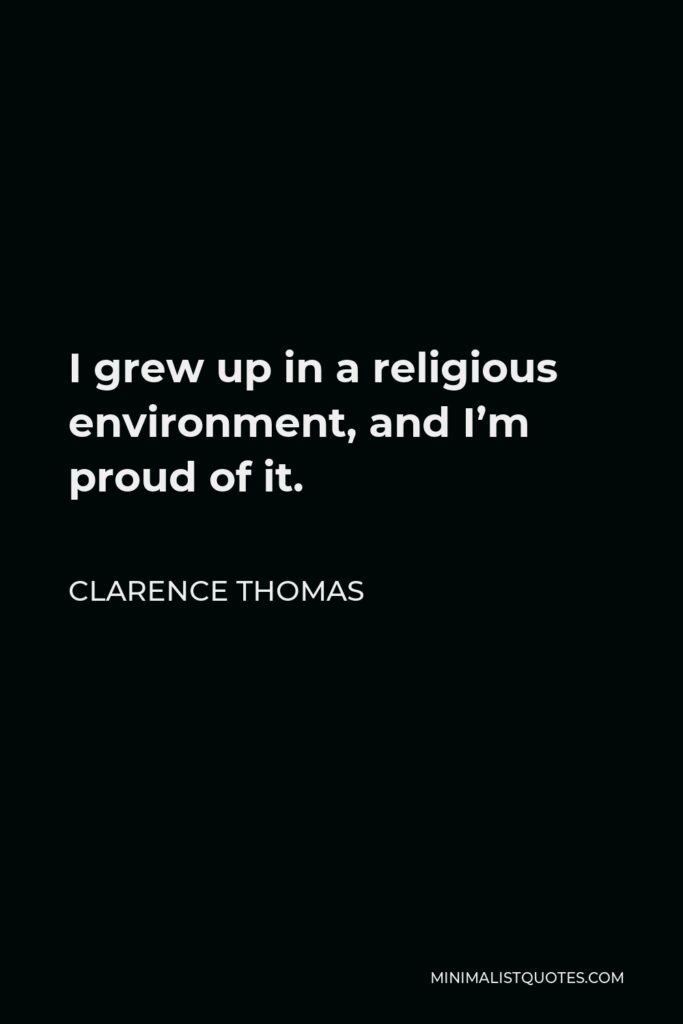

I grew up in a religious environment, and I’m proud of it.
CLARENCE THOMAS
